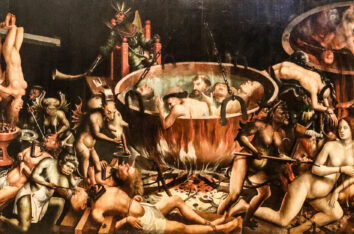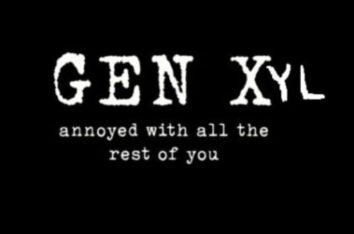Disclaimer: As with the other posts I have written in this series, these meditations are intended for those on whom institutional religion has largely given up. You’re damned anyway, may as well enjoy the ride to eternal hellfire.
First of all, then, I urge that prayers be made for all people, for kings and all who are in high positions, that we may lead a peaceful and quiet life. . . . (I Tim. 2:1-2).
Aspire to lead a quiet life, to mind your own business, and to work with your own hands, as we commanded you (I Thess. 4:11).
As some of you know, I recently returned from a trip to Budapest, Maiori, and Paris. One thing that has always struck me about life in Europe (especially the Catholic parts) is the utter lack of rush and hurry — that frantic and frenetic pace of life that has us Americans screaming at the microwave for taking too long to warm up our Hot Pockets is largely absent from ordinary European life.
A perfect case in point is the fact that from roughly 2-5pm each afternoon most shops and restaurants in Italy are closed for riposo (they call it siesta in Spain). The purpose of this is to encourage both employees and customers to relax and enjoy a bit of downtime every day. The underlying idea here is that there is more to being human than nonstop consumption, and that maintaining our imago Dei may involve giving the Market the finger, letting it grind to a halt while we sit on a bench with a book and a smoke every now and then.
My guess is that none of us are “revolutionaries” whose aim is to overturn society and remake it into a more humane — and human — image. Who has that kind of time? But what we can do, and what may be a contemporary application of St. Paul’s admonitions cited above to “mind our own business” and “lead a quiet life,” is lodge little protests against the status quo, and lodge them often.
In Catholic Europe this may look like shops closing each afternoon, but here in the US it will look slightly different: Perhaps we will try to quit eating fast food (and eating it so fastly)? Maybe we will embark on a new career path that actually comports with what we’re passionate about? Or what about making it a priority to need less so we can earn less by working less?
But regardless of what form these subversive protestations may take, it’s important that we employ them. Because make no mistake, the most effective way to become enslaved to the incessant demands of the Machine, the Man, the Matrix, or the Market (call it what you will, St. Paul called it “the World”), is to continue to unreflectively do nothing.



